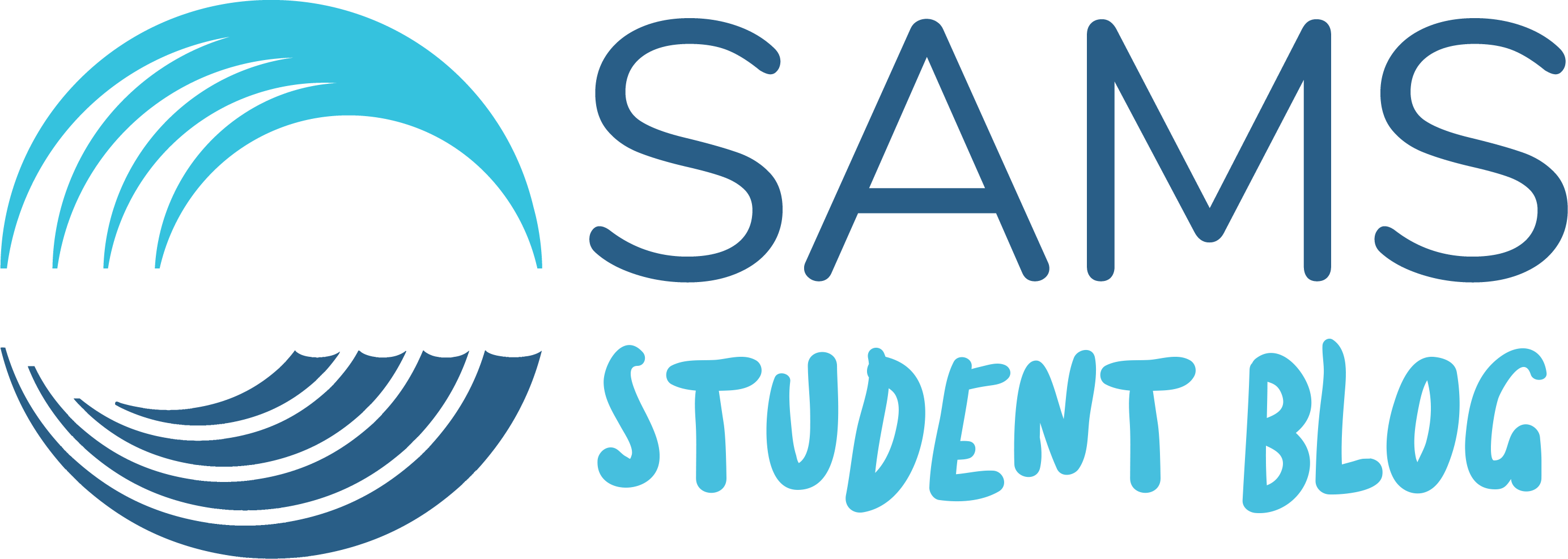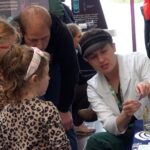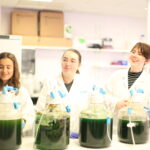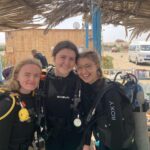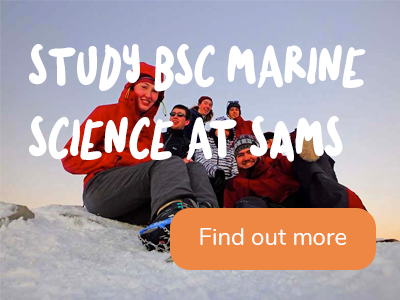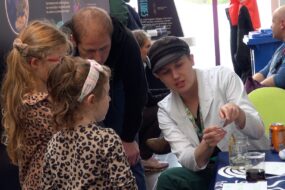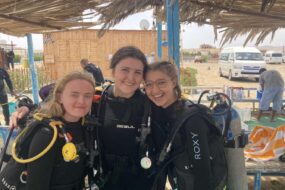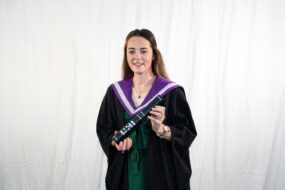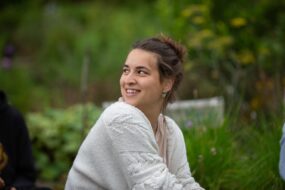(Header image: Phyco Studio. Evie pictured far right)
Evie Whyte, from Dumfries & Galloway in Scotland, shares her journey so far as a Master’s student in Algal Biotechnology and Bioeconomy, the only course of its kind in the UK taught at SAMS, a partner of UHI. From lab skills to networking opportunities, Evie reflects on her rewarding time on course .
What sparked your interest in algal biotechnology and led you to pursue a master’s degree in this field?
I was looking to progress my studies in the year following my undergraduate degree in Marine and Freshwater Biology. I thought a natural progression would be into something ecology-focused, but then I saw SAMS’ new Algal Biotechnology and Bioeconomy course advertised on LinkedIn. I researched the world of algal biotechnology and was amazed to see the many applications micro and macroalgae have across various industries.
My undergraduate degree was massively impacted by Covid-19, and so the heavy course focus on developing lab skills and experience was very attractive to me. My initial interests when applying for the course were predominantly bioplastic production and bioremediation potential, but now towards the end of the course, my interests have combined with my previous love of community ecology. For my final dissertation, I am researching the interactions between bacteria and algae, and how these interactions can aid their growth and production of beneficial compounds for biotechnology applications.
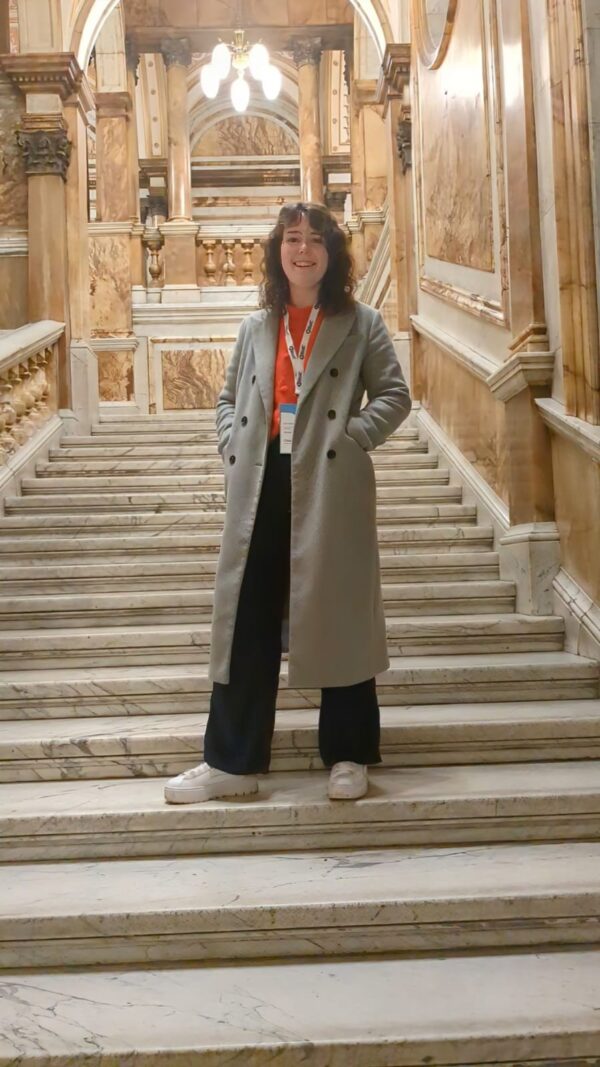
(Evie pictured at Glasgow’s City Chambers for the IBioIC Annual Conference in March 2024).
Now that you are well into semester 2, what has been the highlight of the course so far and can you share any memorable or rewarding experiences?
It has been a very fulfilling experience working with the Culture Collection of Algae and Protozoa (CCAP) at SAMS for the Scale-Up and Processing module in Semester 2. We each chose a microalgal species which we lovingly named and adopted as our ‘pets’ for the semester and saw them grow from 10 millilitre test tubes right up to the 70 litre bioreactors in the lab. I had a Tetradesmus species so my culture was known as Desmond up until the 10 litre carboys where it was renamed ‘Big Dez’!
It was fantastic to get some hands-on experience this semester and learn about the growth parameters that need to be met for scaling up microalgal production, especially as this is such a prominent topic for discussion in the sector. We have just returned from Cambridge for the EIT Food course, where we saw the scale-up facilities at the Algal Innovation Centre (University of Cambridge) and got to chat with lots of interesting people actively researching and working in the sector.
How has this Master’s programme prepared you for potential career paths in algal biotechnology, and what role do you see yourself playing in the field?
The lab skills and experience that we have gained from this course have been invaluable, and has prepared us for a number of different roles and industries once we enter the sector as working phycologists. Additionally, the various conferences that we have attended throughout the year have been very beneficial for networking and interacting with potential future employers. It has been encouraging to see familiar faces at these networking events and be recognised as SAMS students – the excellent reputation of the institute will definitely help us get our foot in the door!
I’m still not 100% certain what role I see myself working in once the course is complete. I do know I would like to continue working on biodiversity studies, whether that be of algal species themselves or the organisms that utilise them and would be interested in improving my skills in bioinformatics and data processing through some online courses. I believe these will be valuable skills to have regardless of what direction I decide to take my career.
If you could use algal biotechnology to solve any everyday problem or create a novel application, what would it be and why?
I think the potential to use algae (both microalgae and seaweeds) for bioremediation purposes could play a big role in how we treat wastewater in the future, although it is unclear currently if this will be on a large scale or just for individual companies with high water footprints. Various industries are moving towards more natural remedies to solve certain problems, and I strongly believe that algae is going to be a big contributor in this movement.
What advice do you have for prospective students interested in pursuing a master’s degree in algal biotechnology?
My biggest piece of advice is that the more energy you put into the year, the more you will gain from it, and I don’t just mean the time spent studying! The year is intense but extremely impactful.
The greatest thing I have gained from this course is the relationships I have built with fellow students and scientists in the field. I’ve built relationships with the incredible staff at SAMS who are first and foremost researchers themselves, and who are equally as excited by the science. I’ve also made friends with like-minded students from across the globe thanks to shared classes with the international MSc Aquaculture, Environment and Society (ACES) Erasmus Mundus course.
Finally, I’ve met a number of interesting people from industry and research at numerous networking events, and I am sure to reconnect with many of them throughout my career. I have gained a lot from this year simply by getting out of my comfort zone and participating in as much as I can. So, my parting piece of advice to prospective students would be to approach everything with an optimistic and can-do attitude.
To find out more about marine science courses at SAMS, a partner of UHI, visit www.sams.ac.uk/study.
Recent Post
Student Focus – Artemis Eales: MRes Marine
- 18 December 2024
- 6 min read
Student Focus – Evie Whyte, MSc Algal
- 9 May 2024
- 5 min read
Field Trip Reflection: A First-Year’s Experience of
- 2 May 2024
- 5 min read
